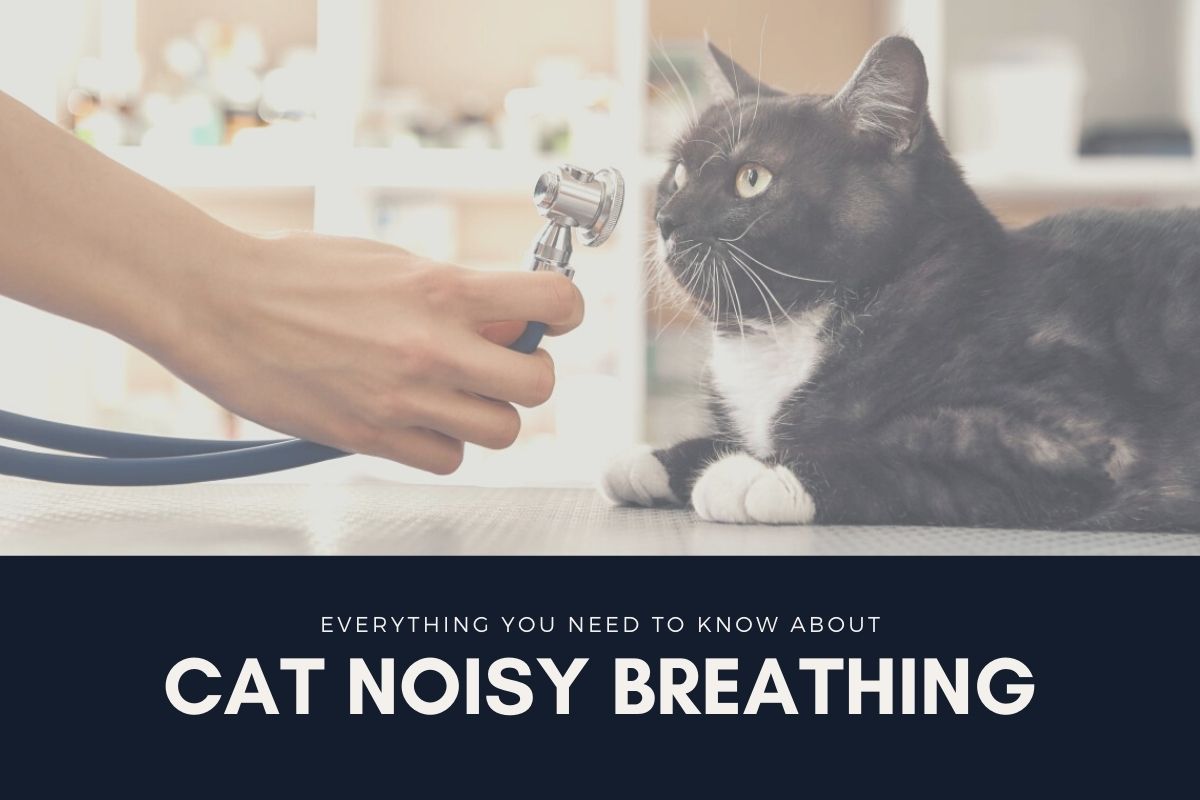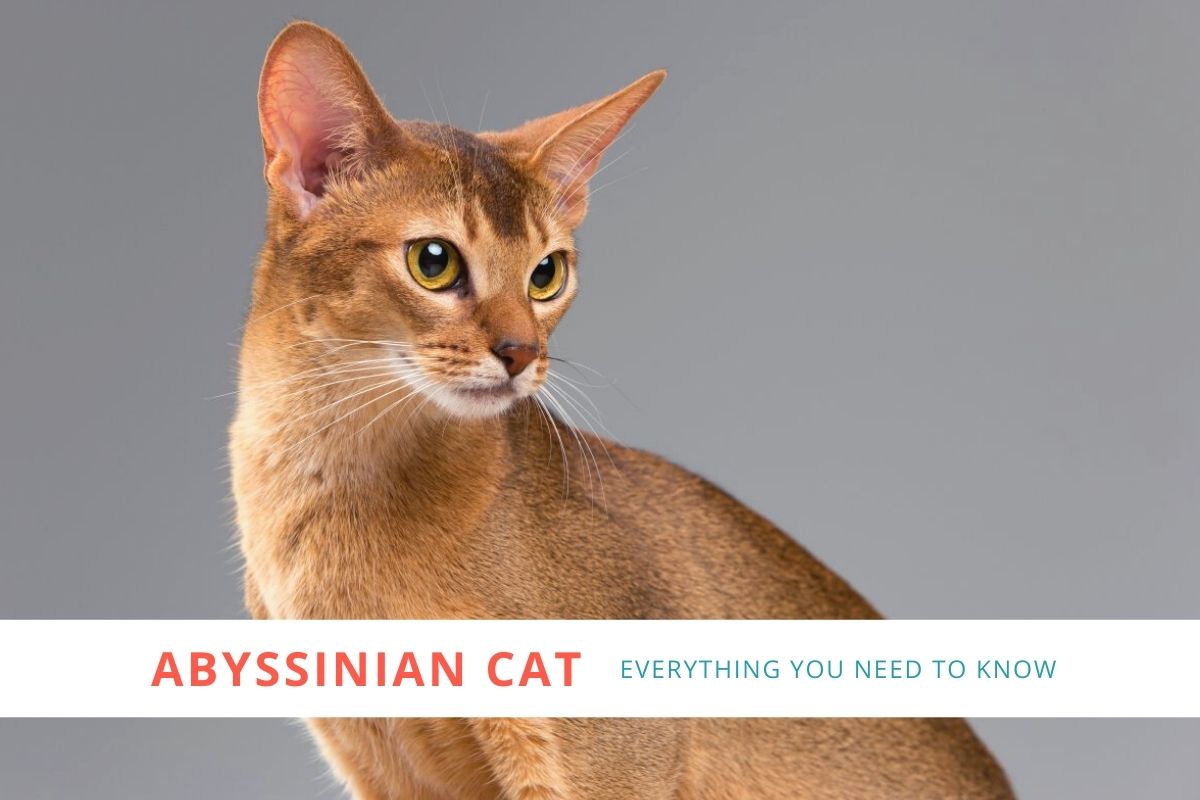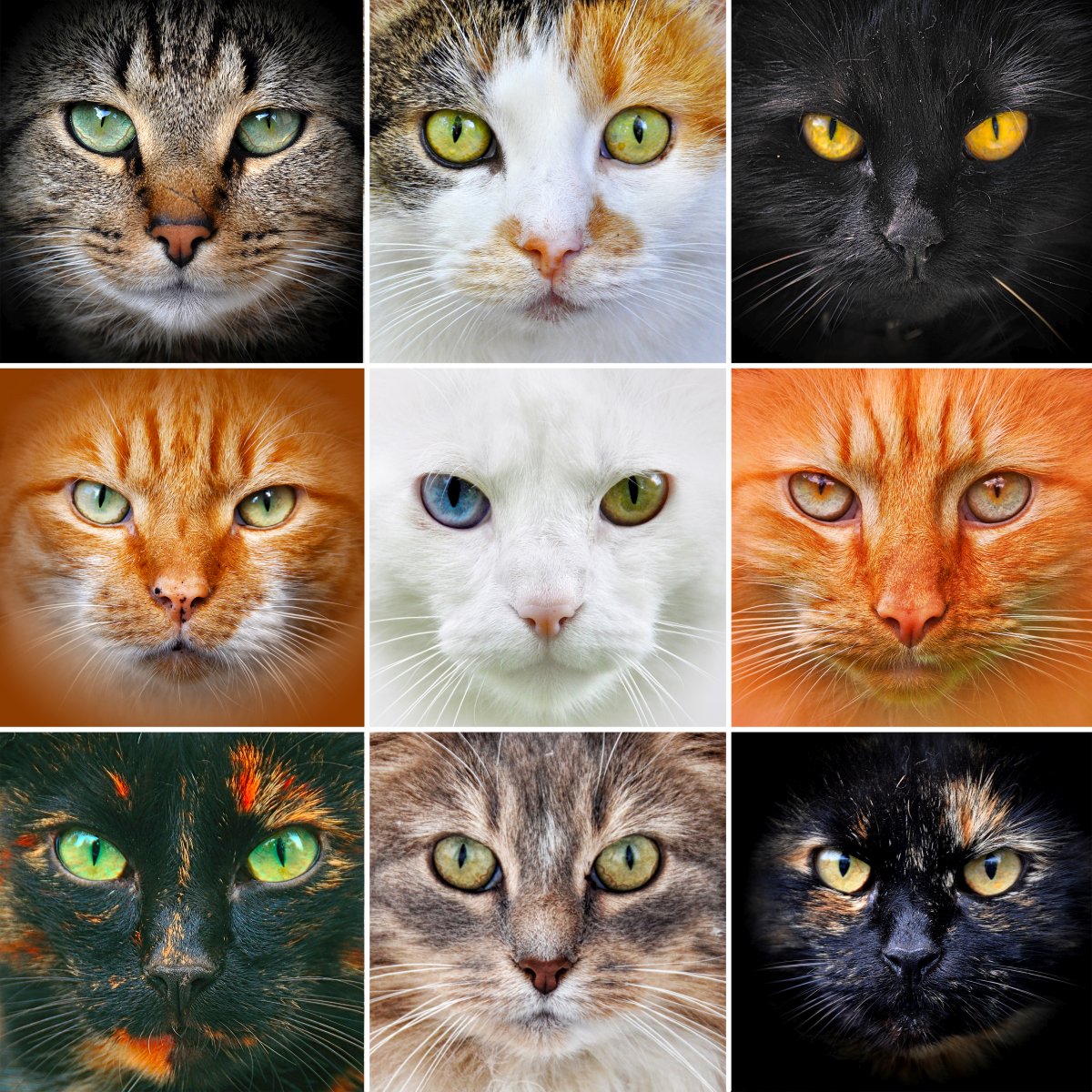Your cat has started breathing much more loudly than usual. What does this mean? A cat’s noisy breathing can have many different causes and implications, some of which are complicated. This is why it is crucial to keep a constant check on your cat’s health to take them to the veterinarian as soon as you sense something is wrong.
Stridor and Stertor
First, we need to understand what each of these terms means. Stridor is more of a high pitched sound that your cat makes when they breathe in, whereas stertor is a low pitched sound made by cats that have difficulty breathing.
Stridor will happen when your cat’s nasal passages are blocked, and the air cannot flow freely through and through. This causes the muscles in the surrounding area to vibrate. Stertor is also when the airway passage has been blocked. When the fluid in the area vibrates, it creates this sound.
Why Is My Cat Noisy Breathing?
Your cat is making a sound while breathing because there may be something in their nasal passage obstructing airflow to their lungs. A cat’s noisy breathing can also happen when their nasal passages have become narrow, which means less air reaches their lungs and all other parts of their body get less oxygen.
Spotting Your Cat’s Noisy Breathing
Abnormal or a cat’s noisy breathing can be spotted if you sit with your cat and try to listen to them breathe for a minute or two. You do not need any special equipment such as a stethoscope to see if your cat is breathing normally or not.

Are Some Cats More At Risk Than Others?
Studies show that Persian and Himalayan cats are more at risk for breathing problems. This is due to their genetics, and they usually have flat faces and short noses. Punch-faced cats are of especially high risk. They are more susceptible to breathing problems because their nose is built. These breathing problems can be genetic too.
If it runs in their family line, your cat is more likely to have problems breathing. The voice box may become paralyzed early on in some of these cats, likely to be detected before the cat turns one. This is also a genetic condition.
If your cat has passed the age of one and is much older now, but you have noticed its noisy breathing, its voice box could still be paralyzed. If your cat had this condition before it turned one, it is genetic. However, older cats can also develop this condition – it is inherited and can be developed over time as well.
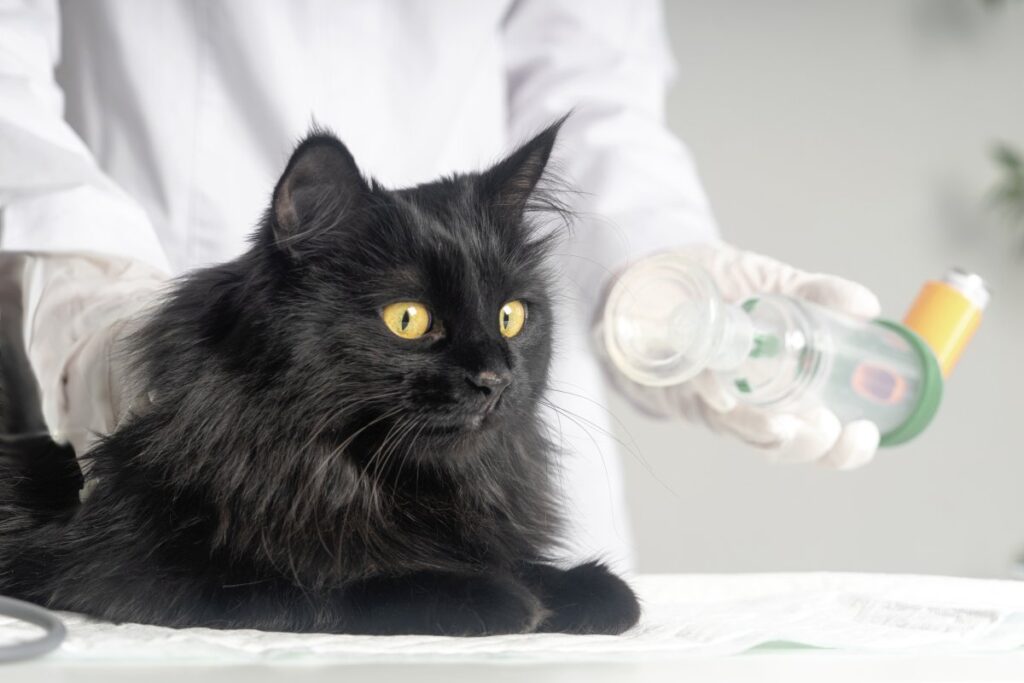
Common Problems Your Cat May Be Having
There are many causes for a cat’s noisy breathing, some of which are very common. However, the increased commonality of a problem does not decrease its fatality. A cat’s noisy breathing may be caused by less severe conditions, such as asthma, respiratory infections due to bacteria or viruses, and laryngitis, which is the inflammation of the throat and can usually be cured with medications that your veterinarian will prescribe.
However, a cat’s noisy breathing can also be caused by several more serious issues, such as lung disease, cardiac problems that pertain to your cat’s heart, growth of tumors on the voice box, or the nervous system’s dysfunction.
Many of these can also be fatal or cause more health issues for your cat, so it is best to get it checked in time. Even if you don’t know what is wrong with your cat but have noticed its heavy breathing, it is best to get it checked out. This way, you can cross out the possibility that your cat is fatally ill. Even if your cat is very sick, at least you will know and be able to get the treatment and help from professionals.
Factors That Make the Illness Worse
No matter what your cat has been diagnosed with, rest is paramount. If you have noticed your cat’s heavy breathing but have not yet been diagnosed with anything, make sure your cat gets plenty of rest. A few factors that risk aggravating your cat’s health condition are sitting in high temperatures, exercise, or previous/ underlying health conditions.
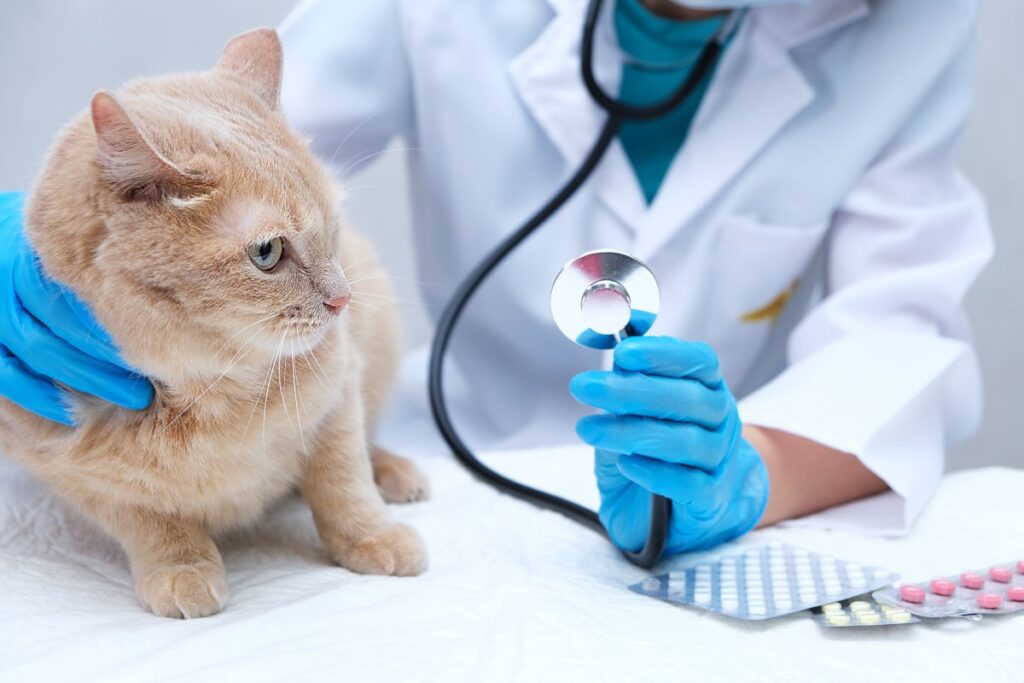
What You Can Do For Your Cat
You should make sure your cat is comfortable and not sitting out in the heat or the sun. Perhaps turn on the fan in a room and leave them there to rest. It is also good to keep them away from other animals or pets in the house and children. Your cat with breathing problems may start jumping around and playing, which will make it harder for them to breathe. It might aggravate their condition, so it is probably best to make your cat lay off exercising for a few days until you determine what is wrong.
Another thing to note is that it is important to keep your cat indoors during this period. This is so that it does not catch any other illnesses or bacteria from outside, nor do they get hurt by fighting with other wild animals. Investing in an air purifier is also a good idea so that your cat can breathe more easily and good, clean air.
Diagnosing Your Cat
Unless you are a professional, it is probably best to take your cat to a veterinarian. At the veterinarian’s office, you should provide the doctor with a complete history of your cat. Explain when your cat’s noisy breathing started and anything else you have noted regarding your cat’s health, such as loss of appetite or aggression. It will help your veterinarian do a full work-up of your cat and figure out what is wrong.
A cat’s noisy breathing can also be a simple flu or infection that will go away in a few days. However, it is better to be safe than sorry, so taking them to the veterinarian is best.

